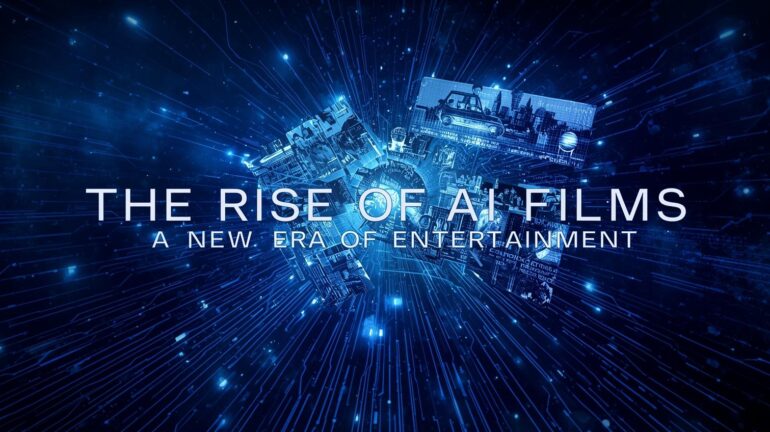
The film industry, long defined by creativity, storytelling, and human performance, is undergoing a radical transformation. Artificial Intelligence (AI) is no longer confined to post-production effects or script analytics it is becoming a core part of the filmmaking process. From AI-generated scripts to virtual actors and fully automated editing, a new era of cinema is emerging, challenging traditional notions of creativity and raising questions about the future of entertainment.
At the heart of this revolution is AI-assisted content creation. Writers and producers are using AI to analyze audience preferences, predict box-office performance, and even generate storylines. AI algorithms can evaluate vast amounts of data from streaming platforms, social media trends, and film reviews to suggest plot elements likely to engage viewers. This data-driven approach allows creators to tailor narratives, refine scripts, and optimize pacing in ways previously unimaginable. While some critics fear that AI may stifle originality, proponents argue that it enhances creativity by providing new tools and insights to storytellers.
Beyond scriptwriting, AI is revolutionizing visual effects and animation. Traditional visual effects are time-consuming and costly, often requiring months of manual labor. AI tools can now generate realistic environments, simulate complex physics, and even create digital characters with lifelike expressions in a fraction of the time. Animation studios are leveraging AI to produce fully rendered scenes automatically, reducing costs while maintaining high-quality visuals. This democratization of production opens the door for independent filmmakers to compete with major studios, leveling the playing field in an industry historically dominated by large budgets.
One of the most striking developments is the emergence of AI-generated actors and virtual performers. Using techniques such as deepfake technology and generative adversarial networks (GANs), filmmakers can create digital actors who perform convincingly without ever stepping on set. This innovation allows for recreating historical figures, generating entirely new characters, or even resurrecting deceased actors for new projects. While controversial, these capabilities raise intriguing possibilities for storytelling and expand the creative palette available to filmmakers.
AI is also reshaping post-production and editing. Tools powered by AI can automatically select the best takes, match lighting and color grading, and even compose music to complement scenes. Editors can focus on higher-level creative decisions, while AI handles repetitive and technical tasks. This not only accelerates production timelines but also reduces human error, ensuring a polished final product. In essence, AI acts as an intelligent collaborator, amplifying human creativity rather than replacing it.
The integration of AI into filmmaking is not limited to production it extends to audience engagement and distribution. Streaming platforms use AI algorithms to recommend content tailored to individual tastes, influencing which films succeed commercially. By analyzing viewer behavior and feedback, AI can guide marketing strategies, release schedules, and even the type of content developed in the future. This feedback loop between creation and consumption creates a more responsive and adaptive entertainment ecosystem.
Despite these opportunities, the rise of AI films presents challenges. Intellectual property and authorship are pressing concerns. When a script or character is generated by AI, questions arise about who owns the rights and who should be credited. Similarly, the use of digital actors introduces legal and ethical issues regarding consent and likeness. The industry will need new frameworks to navigate these complex questions.
Artistic integrity is another point of debate. Critics argue that over-reliance on AI could lead to formulaic storytelling driven solely by data, sacrificing the human intuition and emotional depth that define great cinema. Filmmakers must strike a balance, using AI to enhance rather than dictate the creative process.
Nonetheless, the potential of AI in entertainment is undeniable. It allows for faster production, lower costs, and unprecedented experimentation. Independent filmmakers can now access tools once reserved for blockbuster studios, and audiences may experience stories that were previously impossible to visualize. AI is not replacing human creativity it is expanding it, enabling filmmakers to explore new genres, styles, and narratives.
The rise of AI films signals a new era of entertainment, where technology and creativity intersect. As AI becomes an integral partner in filmmaking, the industry will continue to evolve, challenging conventions and opening doors to stories limited only by imagination. For audiences, this promises richer, more immersive experiences. For creators, it represents a shift from mere storytelling to co-creation with intelligent machines a future where the art of cinema is amplified by the intelligence of AI.